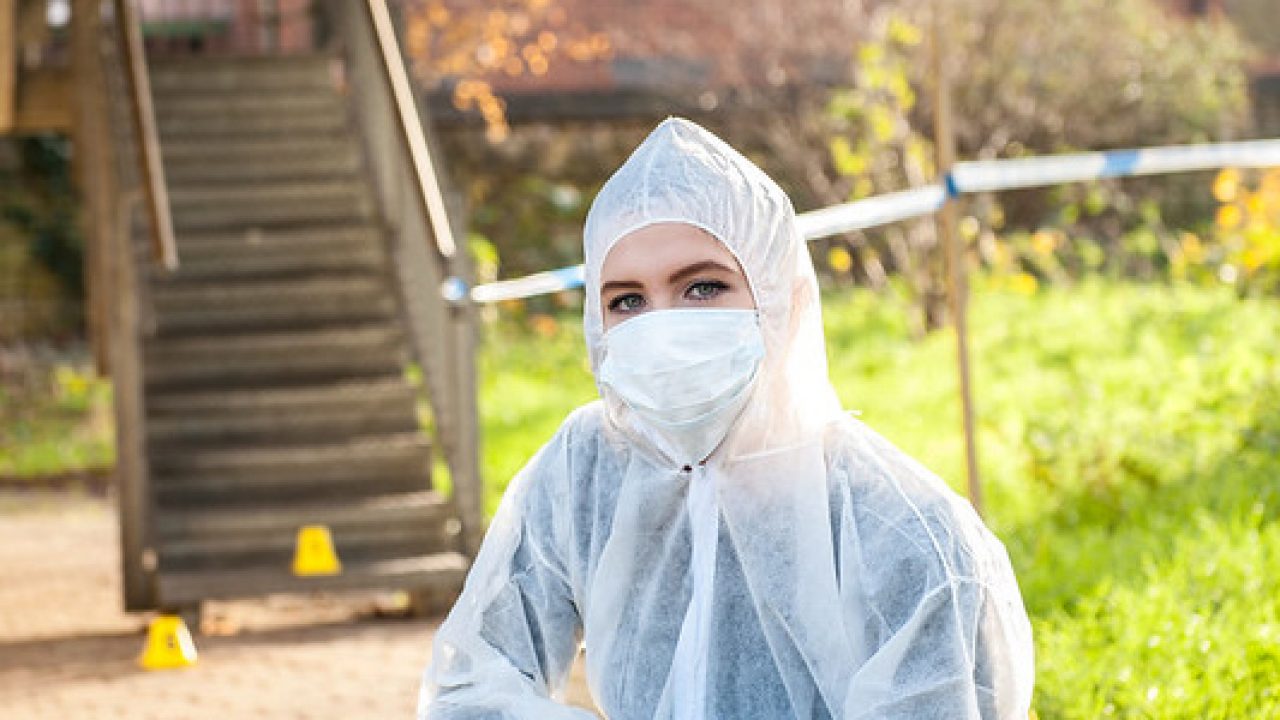We may still be able to offer you a place through Clearing. Call us on 03330 432 414.
Our phone lines open at 11am
On this course, you’ll study crime and criminal investigations, focusing on the investigative process. You’ll develop a strong understanding of the Criminal Justice System and the role of investigators within it, while also exploring the current challenges faced by law enforcement and investigators.
You’ll benefit from the insights of academics with extensive experience in policing organisations. They’ll guide you through topics such as identifying and securing evidence, interviewing techniques, and victim support, and the relevance of these and all aspects of policing and investigation work.
Throughout the course, you’ll engage with a variety of case studies and hands-on practical scenarios. You’ll examine historical, empirical, and theoretical perspectives on key issues related to evidence gathering and criminal justice.
By the end of the programme and with our support, you’ll be a well-rounded and confident graduate with the investigative mindset and knowledge needed for a successful career in policing or investigation.
Students will encounter a range of teaching and learning styles, from large lecture halls to small classrooms, as well as making use of our state-of-the-art practical investigation spaces in the Crime House and Custody Suite.
Students can expect to learn not only from the expertise of the teaching and lecturing staff, but also from a wide range of inspirational guest speakers from local organisations, businesses and alumni.
Students will complete a range of assessments, from conventional essay-style coursework through to portfolios, blogs, reviews, research proposals and research reports. Practical scenarios feature heavily throughout requiring students to reflect on their performance in real-world settings to aid their development as a professional investigator.
Opportunities are available for students who wish to complete an intership and/or placement as part of the course.
*This course is 'subject to validation' which means it is in the final stages of approval. Courses are normally approved, but if it is not then we will contact applicants and those who register interest to help you find a suitable alternative.
We may still be able to offer you a place through Clearing. Call us on 03330 432 414.
104 – 120 UCAS tariff points, from any level 3 qualification, which includes A-levels, BTEC, T-levels and many other qualifications. Please see the UCAS tariff calculator for a list of level 3 qualifications and associated tariff points.
If you are unsure whether we could make you an offer or you have any questions, just get in touch with our admissions team who will be able to advise you.
English Language or Literature and Maths Grade 4/C in GCSE (or equivalent) are normally required.
We welcome applications from mature students (aged 21 and over) and do not necessarily require the same academic qualifications as school leaving applicants, although some entry requirements may still apply for Professionally Accredited Courses. We accept Access to Higher Education Diplomas and make offers on an individual basis.
Please read the entry requirements for your country – and contact our admissions team if you have questions.
You're viewing course modules for the course option. Choose a different course option to see corresponding course modules.
Here's an example of the types of modules you'll study (the contents and structure of the course are reviewed occasionally, but it is unlikely that there will be significant change).
Module information is not available for this programme.
You're viewing fees for the course option. Choose a different course option to see corresponding course fees.
| Start date | Location | UCAS code |
Fee (UK) Fee per year |
Fee (international) Fee per year |
|---|---|---|---|---|
| Sep 2025 | Francis Close Hall, Cheltenham | L315 | £9,535 | £17,425 |
| Sep 2026 | Francis Close Hall, Cheltenham | L315 | TBC | TBC |
| Sep 2027 | Francis Close Hall, Cheltenham | L315 | TBC | TBC |
|
International students can benefit from a range of scholarships and bursaries across many undergraduate and postgraduate programmes. |
Find out more | |||
At UoG we create a climate for bravery and growth. We instil confidence in all our students, so you can graduate career-ready and meet your ambitions.
95% of our graduates are in work or further study*, but if you’re not in a job 6 months after graduating we’ll guarantee you 6 months of free support, followed by the offer of a paid internship to kickstart your career – plus we’ll commit to lifetime career coaching. Eligibility conditions apply.
*Graduate Outcomes Survey published 2024 and based on 2021/22 leavers
Discover our promisesSorry there are no available teaching staff at this time.
Gain new skills and develop innovative projects using cutting-edge facilities, labs and suites. Work with expert lecturers and professionals from across the industry.
Got your results? Apply via Clearing for your chance to win a FREE year of accommodation in halls.

